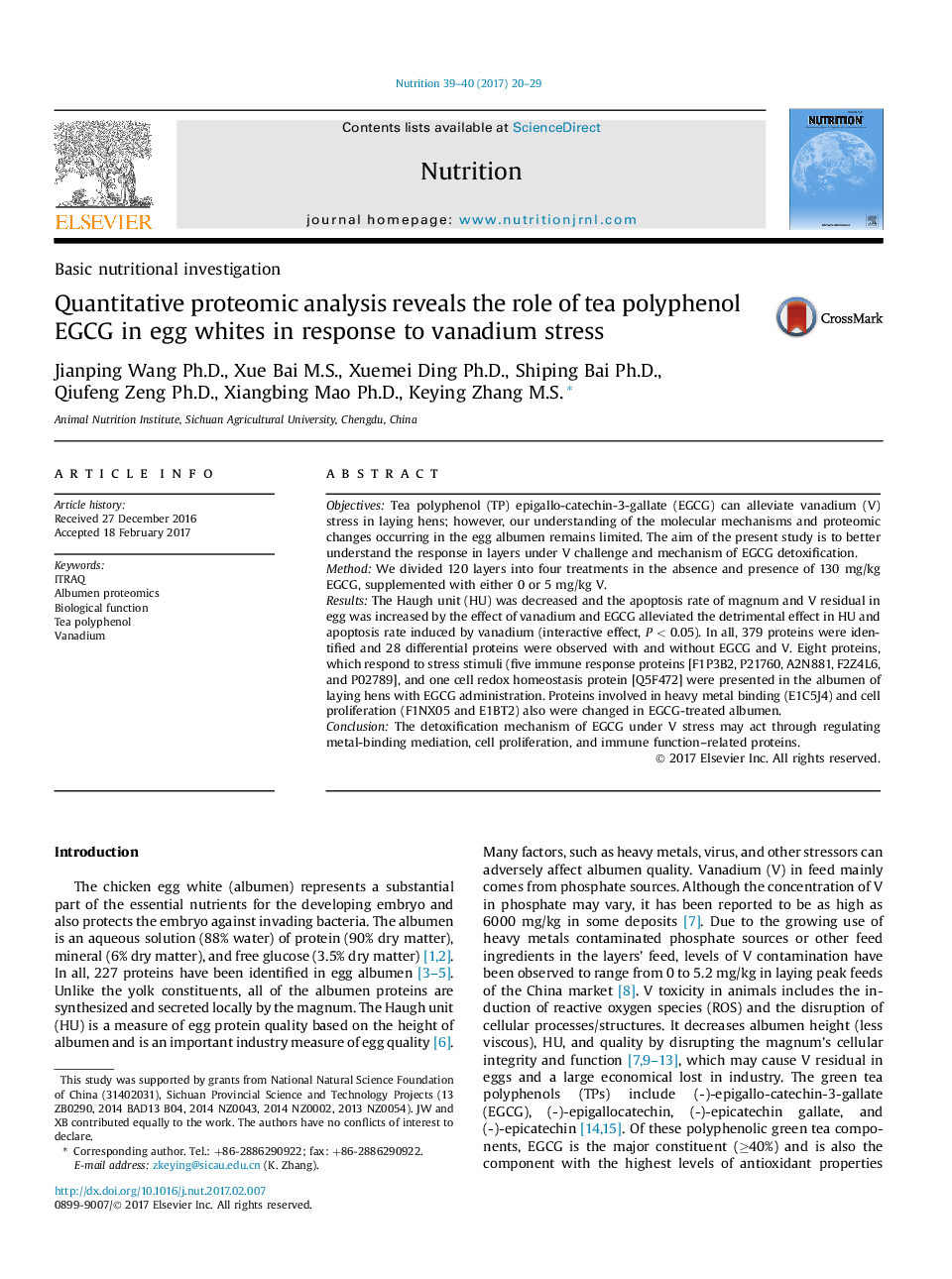| Article ID | Journal | Published Year | Pages | File Type |
|---|---|---|---|---|
| 5656914 | Nutrition | 2017 | 10 Pages |
â¢Vanadium induced lower albumen quality but the mechanism is still not elucidated.â¢Proteomic alteration of egg albumen from tea polyphenol and vanadium feeding layers were analyzed and indicated 379 proteins and 28 differential proteins with and without epigallo-catechin-3-gallate (EGCG) under vanadium (V) exposure.â¢Eight proteins, responding to stress stimuli (including five immune response proteins, one cell redox homeostasis protein, two cell proliferation proteins and one heavy metal binding protein), were presented in the laying hens in EGCG treatment.â¢The detoxification mechanisms of EGCG under V stress act by mediating metal-binding, cell proliferation and immune function-related protein expression to cause cellular apoptosis in magnum to increase albumen quality.â¢These results help reveal the quantitative proteome pattern for EGCG under V stress and provide protein-level insights into the EGCG-mediated V detoxification process in laying hens.
ObjectivesTea polyphenol (TP) epigallo-catechin-3-gallate (EGCG) can alleviate vanadium (V) stress in laying hens; however, our understanding of the molecular mechanisms and proteomic changes occurring in the egg albumen remains limited. The aim of the present study is to better understand the response in layers under V challenge and mechanism of EGCG detoxification.MethodWe divided 120 layers into four treatments in the absence and presence of 130Â mg/kg EGCG, supplemented with either 0 or 5Â mg/kg V.ResultsThe Haugh unit (HU) was decreased and the apoptosis rate of magnum and V residual in egg was increased by the effect of vanadium and EGCG alleviated the detrimental effect in HU and apoptosis rate induced by vanadium (interactive effect, PÂ <Â 0.05). In all, 379 proteins were identified and 28 differential proteins were observed with and without EGCG and V. Eight proteins, which respond to stress stimuli (five immune response proteins [F1P3B2, P21760, A2N881, F2Z4L6, and P02789], and one cell redox homeostasis protein [Q5F472] were presented in the albumen of laying hens with EGCG administration. Proteins involved in heavy metal binding (E1C5J4) and cell proliferation (F1NX05 and E1BT2) also were changed in EGCG-treated albumen.ConclusionThe detoxification mechanism of EGCG under V stress may act through regulating metal-binding mediation, cell proliferation, and immune function-related proteins.
Graphical abstractDownload high-res image (183KB)Download full-size image
